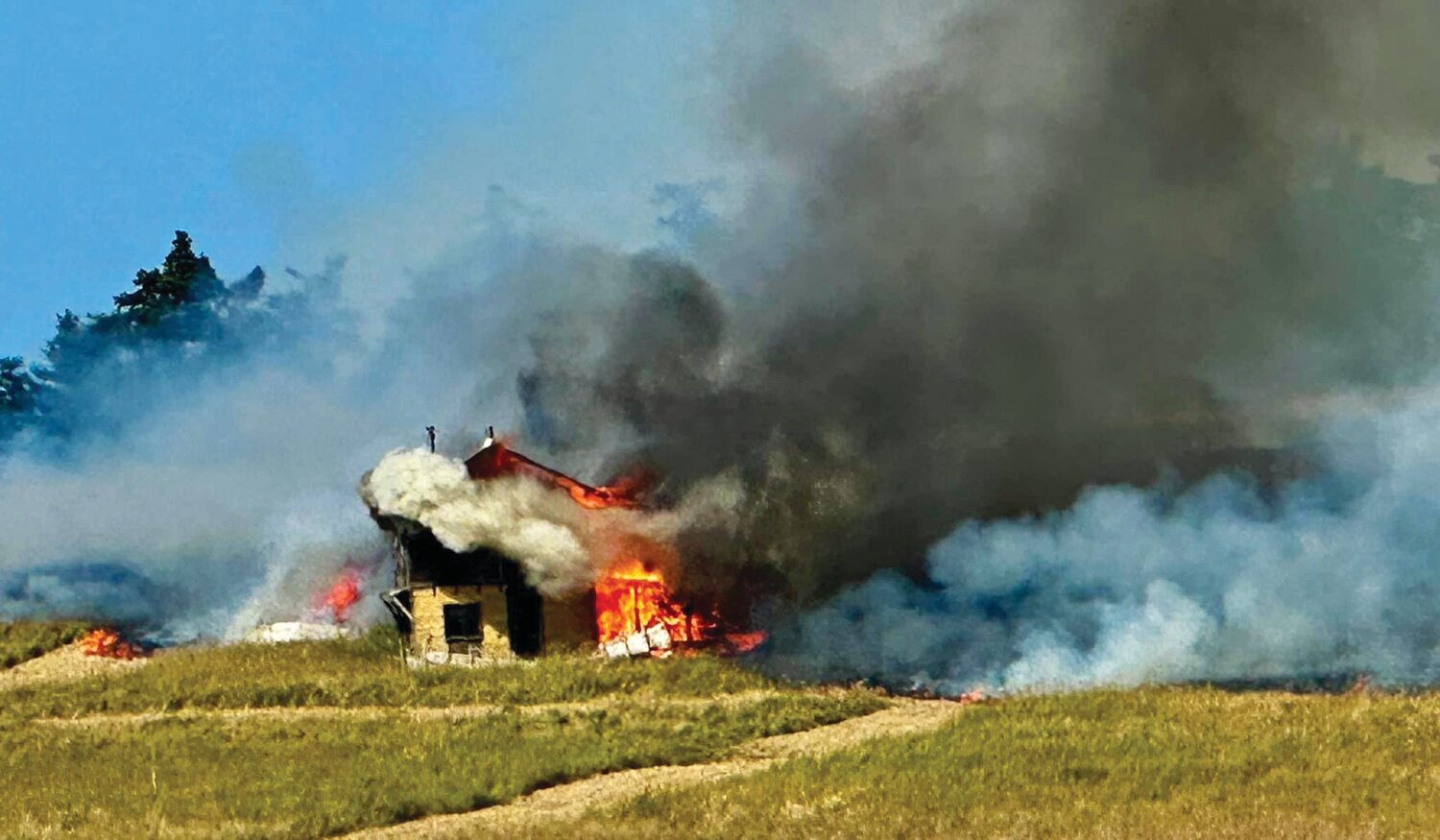The second fire to hit Protection Island in two years spared the isle’s population of endangered birds.
Unlike the blaze in 2021, last week’s fire did not scorch the vast breeding …
This item is available in full to subscribers.
We have recently launched a new and improved website. To continue reading, you will need to either log into your subscriber account, or purchase a new subscription.
If you had an active account on our previous website, then you have an account here. Simply reset your password to regain access to your account.
If you did not have an account on our previous website, but are a current print subscriber, click here to set up your website account.
Otherwise, click here to view your options for subscribing.
* Having trouble? Call our circulation department at 360-385-2900, or email our support.
Please log in to continue |
|

The second fire to hit Protection Island in two years spared the isle’s population of endangered birds.
Unlike the blaze in 2021, last week’s fire did not scorch the vast breeding areas for birds and other animals along the shoreline of the mostly uninhabited island.
Officials said the fire on Wednesday, July 5, ignited acreage on the south end of Protection Island, and was likely caused by a maintenance mower sparking in the long grass.
It was a very hot, dry day, said Marty Bluewater, caretaker and sole resident of the island.
“It’s not surprising that would happen,” he said.
Bluewater was on the island when it started. He reported seeing smoke about a quarter-mile away from his home around 2:30 p.m.
According to East Jefferson Fire Rescue Assistant Chief Brian Tracer, the blaze happened outside the fire district’s territory, and falls instead with the Department of Natural Resources and Washington Department of Fish and Wildlife. County firefighters do not get called out to fires on Protection Island unless specifically requested, as the island is a federally protected wildlife refuge.
However, all three organizations — East Jefferson, the Department of Natural Resources, and Fish and Wildlife — worked together once the calls started coming in. Multiple witnesses from off-island called authorities after a large plume of smoke became visible early in the afternoon of
July 5.
Members of East Jefferson Fire Rescue’s Battalion 13 responded, and visually confirmed a fire on the island. The fire department’s emergency response boat, Marine 16, then launched.
Shortly after the fire was confirmed, the Department of Natural Resources sent a helicopter to circle the island. Federal firefighters quickly arrived.
“I can’t thank the boots on the ground enough,” Bluewater said of emergency responders. “Without them, this could have been the worst day of my life.”
The fire burned for several hours before it was extinguished by the Department of Natural Resources’ helicopter.
Officials said the overall damage was minimal, but a cabin that neighbored Bluewater’s home for decades was burned to the ground.
It was abandoned for some time, but nevertheless, “it was a piece of Protection Island history,” said Bluewater. “It once belonged to some dear friends who lived there for years.
“I’ve taken so many photos of it, and for it to be gone now is a hard cross to bear.”
The cabin burned down when the state helicopter left the area temporarily, possibly to refuel or to respond to another call.
“We need a fire truck out here,” Bluewater said. “The house could have been saved. It wouldn’t have all had to come down to one helicopter.”
He hopes this will be the final straw, that the “powers that be” will see this incident as a wakeup call and outfit the island with its own firefighting capabilities. He recalled his own years in administration, both as a retired Seattle Parks worker and the former manager of Woodland Park Zoo.
“If something needs to happen, you make it happen,” he said.
It was the island’s second human-caused fire in two years, with the previous blaze in August 2021 blackening 25 acres of the southwestern side.
The cause of the beach fire was never determined, but it was a blow to the island’s population of roughly a thousand harbor seals and 70 percent of Puget Sound’s nesting seabirds.
Officials noted the island is still recovering, and this year’s fire was a major setback in the natural rehabilitation process.
The Washington Department of Fish and Wildlife has been working on a native grass restoration project involving controlled burns and reseeding the prairie (hence the maintenance mowing).
This project will likely be put on hold until the island’s arid summer conditions improve later in the year.